TEAM AMANI ON A MISSION TO CHANGE THE FACE OF CYCLING
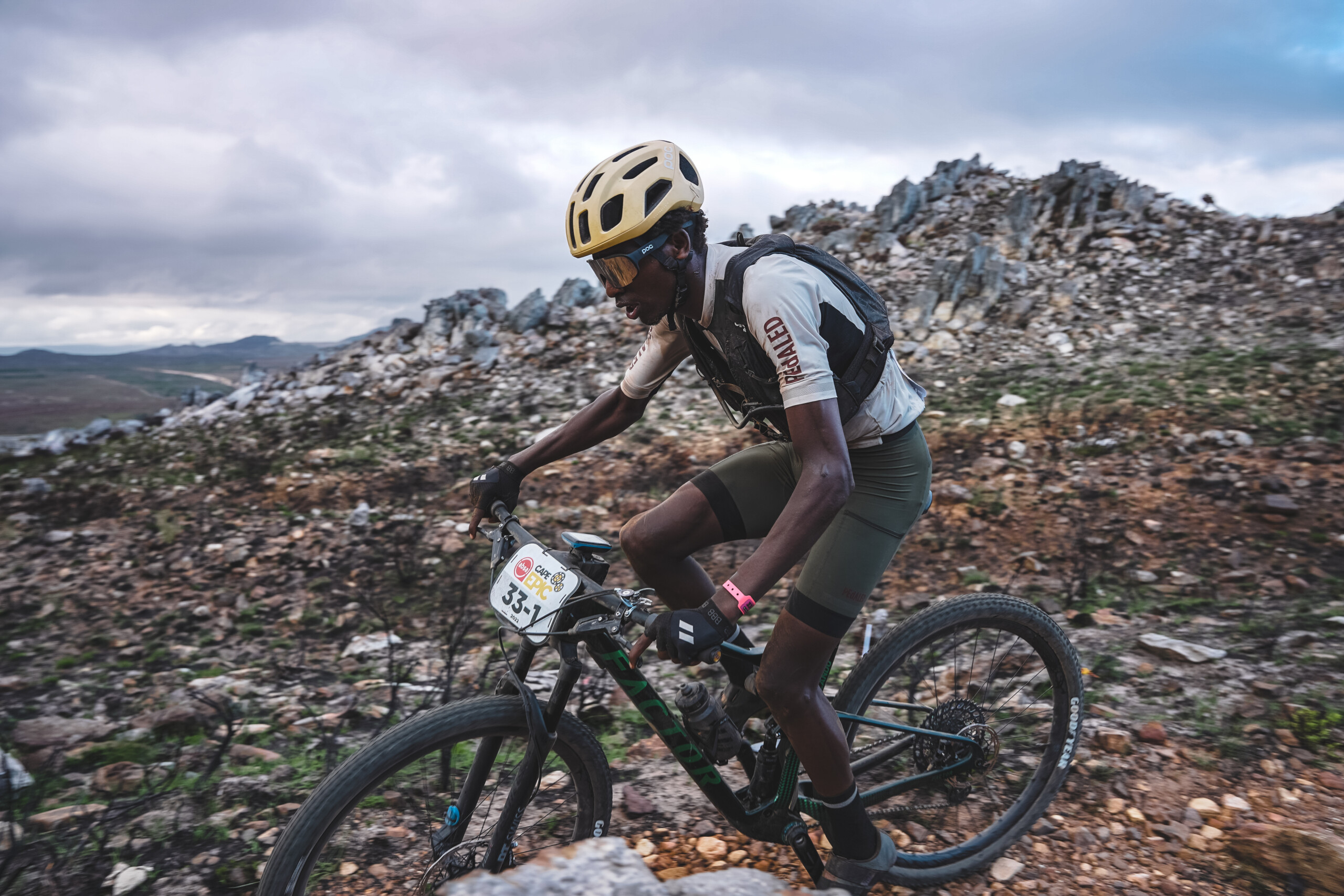
Team AMANI are fresh to the cycling scene and are bringing something completely unique to the table. The twelve rider squad is comprised of the top male and female riders from Kenya, Rwanda and Uganda in East Africa. The team was founded and established by Mikel Delagrange who after spending over a decade travelling to Africa for his work in Criminal Law, and immersing himself in the cycling community there as an avid cyclist himself, he decided it was time to start creating bigger and better opportunities for African cyclists.
The team are primarily focussed on gravel cycling with their greatest targets being their home events at the Migration Gravel Race, which was held for the first time last year attracting a selection of highly ranked international athletes, as well as the Evolution Gravel Race – new this year. Both events were established by Delagrange as part of the AMANI initiative in a bid to enhance inclusivity in cycling and create race opportunities for East African riders by bringing top international competition to them.
In addition, they will be racing a targeted schedule chasing down some of the sport’s most prestigious gravel events throughout Europe and the USA, with a selection of mountain bike and ultra-endurance gravel races in the mix too to suit the strengths of their multi-talented team of athletes.
Factor are incredibly excited to have partnered with Team AMANI for the 2022 season with the riders racing predominately on the LS to meet the needs of their heavy gravel schedule, as well as the new LANDO that the team recently debuted at the Cape Epic. They have already set off to an impressive start with promising performances there and at the Race Around Rwanda.
To learn more about the team, their stellar season beginnings, big 2022 race plans and their long term mission, we spoke with founder Mikel Delagrange.
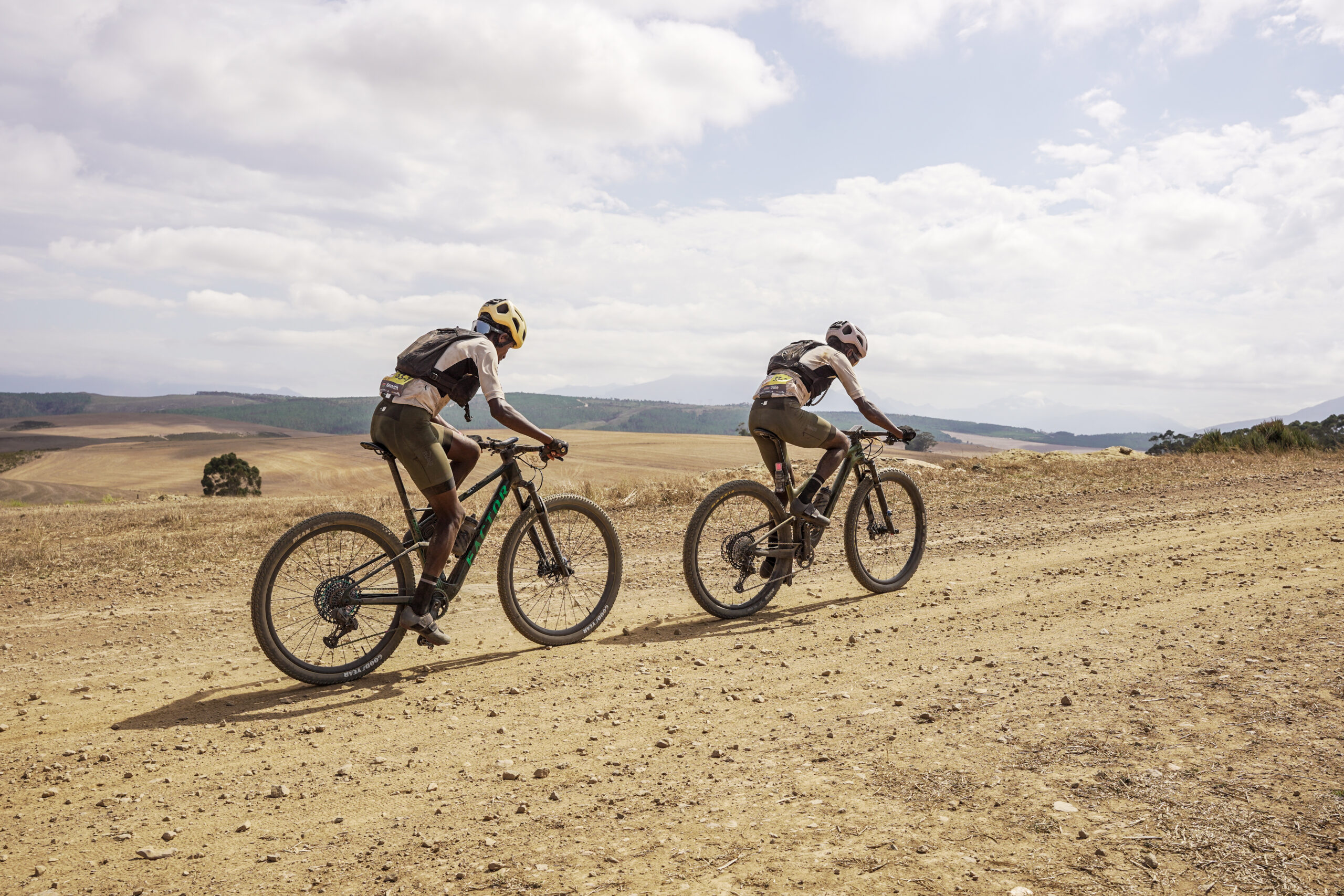
Race Around Rwanda
What a start to the season with Geoffrey Langat finishing the Race Around Rwanda in 2nd place. Can you share a bit about his performance there and what it meant to the team?
The race around Rwanda was a huge goal for us. Even though it’s not the biggest race in the world, it was an opportunity for us to plant a flag because it’s a genre of the sport (ultra-endurance) that we had an inkling we might be good at based on past results over smaller distances. We’d never actually competed in a proper ultra, so there were a lot of question marks regarding how Geoffrey would do in his first race. However, secretly we had some quiet confidence that it was going to be good and he really worked his ass off to prepare. And then of course with Factor coming on and Geoffrey getting used to his new LS – that played a key part, because it’s one thing to do a one day race on a bike, but it’s another to sit on it for 1000km in one go! So, he had to kind of just become one with the LS and he certainly did.
“When you’re asked to ride a 1000km race with over 7000m of incline, your response in mind is ABSOLUTELY NO WAY! But then you get the right equipment provided to you and your mind is switched to a different mode. The Factor LS has the best geometry of all the bikes I have ever ridden. It’s feeling is intact and suits any kind of terrain irrespective of the road conditions and weather. Generally I am a climber and the LS feels so comfortable uphill, while still holding its own on the descents and over flat terrain.” – Geoffrey Langat
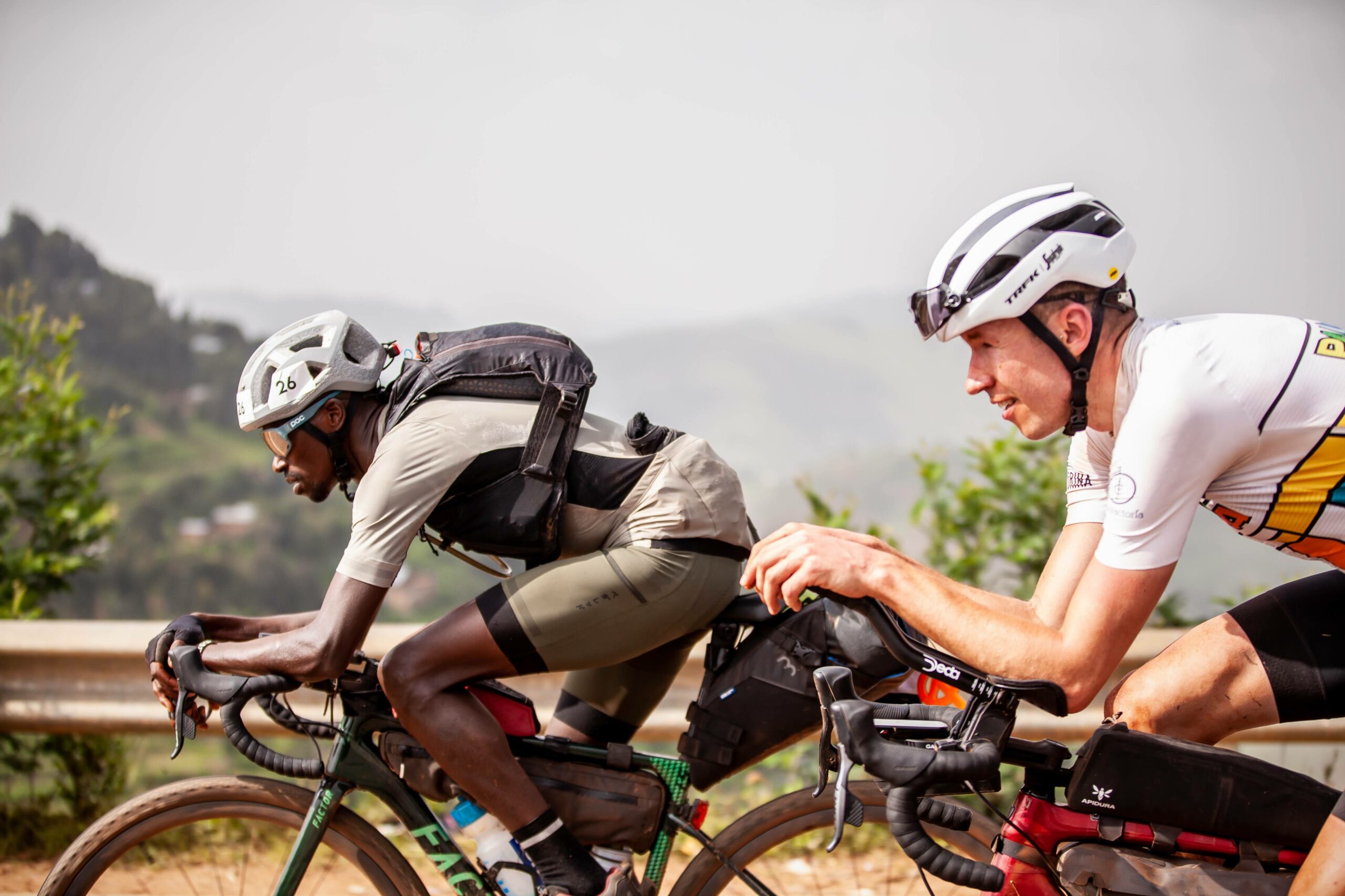
It was quite funny because during the race everybody assumed that Geoffrey had gone out too hard. The official commentators just kept saying, ‘he’s going to blow’. And then he didn’t blow and of course, we knew he wasn’t going to. I was chatting to him throughout and he was zone 1 the whole time! It just so happens that he’s very talented and someone who’s faster than most people. In the end we still made some mistakes because he was too heavily loaded down. He carried a lot of things on his bike that other competitors wouldn’t have, but all things considered, it was really impressive.
He was in 1st leading all the way up to the last 50km and then the guy behind him caught up and they rode into the city together, so we expected a sprint finish after almost 1000km of racing, but 5km away from the finish line, suddenly Geoffrey stopped and the other rider just kept going. So, everyone was scratching their heads, thinking – ‘what happened?’. It turns out that there was this huge hail storm as they came up to the line and at that point Geoffrey hadn’t slept in two and a half days, so he just did what I think most people do on a normal bike ride…he pulled over and put his rain jacket on and his competitor kept riding – so that was the end of it! These are just beginner mistakes, but to still finish 2nd with the field that was there, against athletes who have won some of the biggest races in the world in that category and to beat them quite convincingly – it’s a good start.
Let’s just say he won’t be flying under the radar from now on and hopefully he will just be that much better next time thanks to this experience.
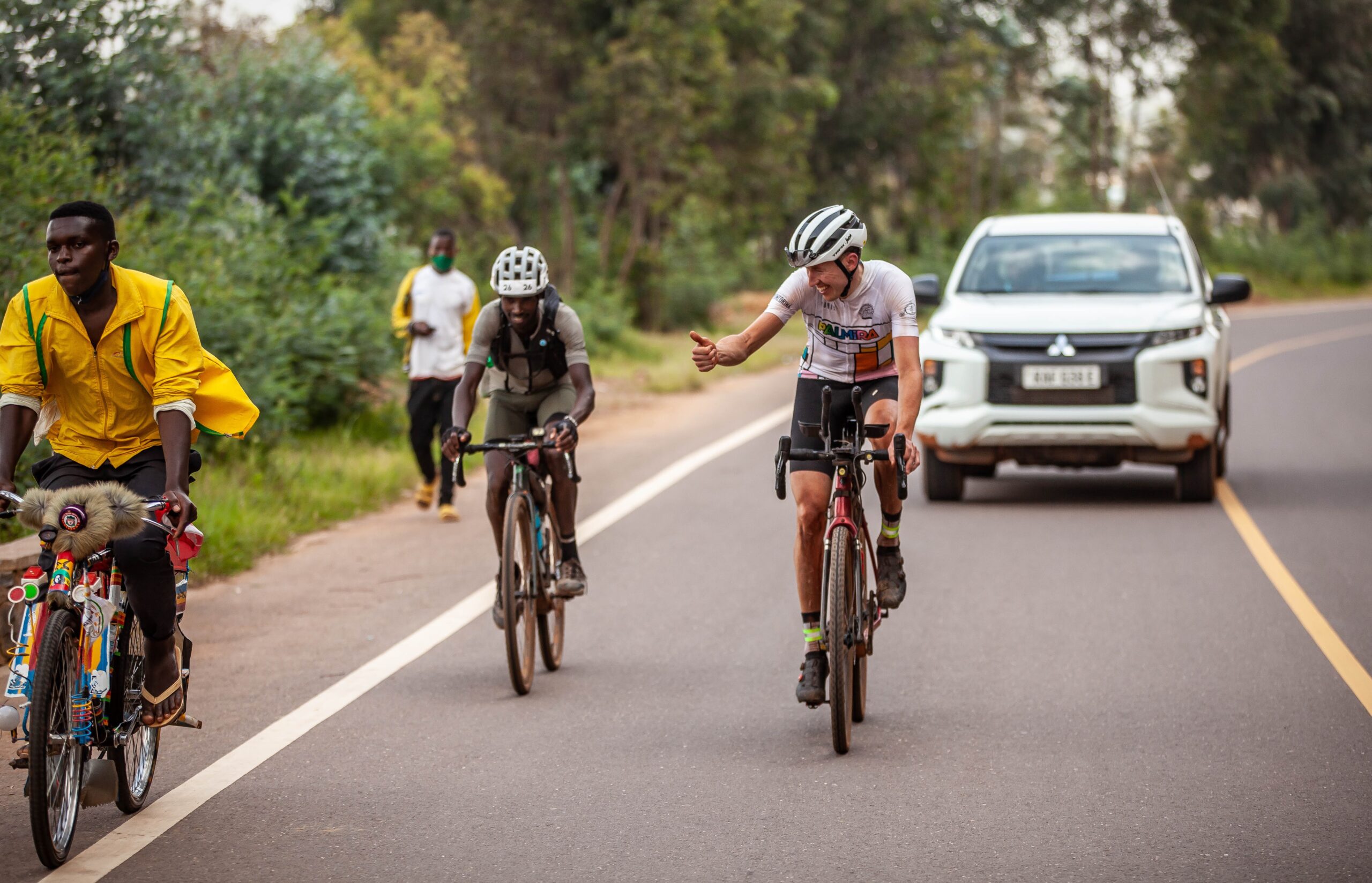
Cape Epic
The team achieved another fantastic result at the Cape Epic with Nancy Akinyi and Jordan Schleck Ssekanwagi placing 4th overall in the mixed category. How did the race go for the team as a whole?
The Cape Epic was a bit of an unknown in the sense that our strength as a team is really on gravel, but we do have committed mountain bikers within the team – riders who have raced at the Commonwealth Games, National Championships, Continental Championships and a lot on mountain. So, it’s not that we don’t have the experience, it’s just that as a team we’ve chosen to focus more on gravel.
From a purely athleticism point of view, the two competitions that we entered within Cape Epic, we knew we could be competitive in. That’s the only reason that we signed up for it because as a team were’ not interested in just going to tick inclusivity boxes. If we’re going to a race, it’s because we have a legitimate expectation to win and to add – Sule (Kangangi) and Kenneth (Karaya) were targeting the Africa Jersey. No black African has ever won that jersey so it was a coveted fruit that we had our eyes on. And then Nancy and Jordan were going for the Green Jersey in the mixed competition. Sule was in the form of his life which I think was a shame because he was really ready for this challenge. Whereas Kenneth had only just switched over to the LANDO the day before the race and we just didn’t get his position on the bike lined up in time. Unfortunately, he hurt his back after the first day and they lost a lot of time. Eventually Ken had to pull out because he was just in too much pain, so we will have to postpone that one for next year. Luckily, Nancy and Jordan were there in the mix. They also lost time over the first two days, just down to getting used to the pace, the terrain – everything, but then from stage 3 onwards they were consistently right up there in 1st, 2nd or 3rd on each stage, so that was really exciting to see and it confirmed what we expected – that from an athletic point of view, if things all go right we can be in the conversation.
“Cape Epic was epic, tough and very rewarding at the end. It was great to be racing on the Factor LANDO which handled the trails perfectly.” – Nancy Akinyi
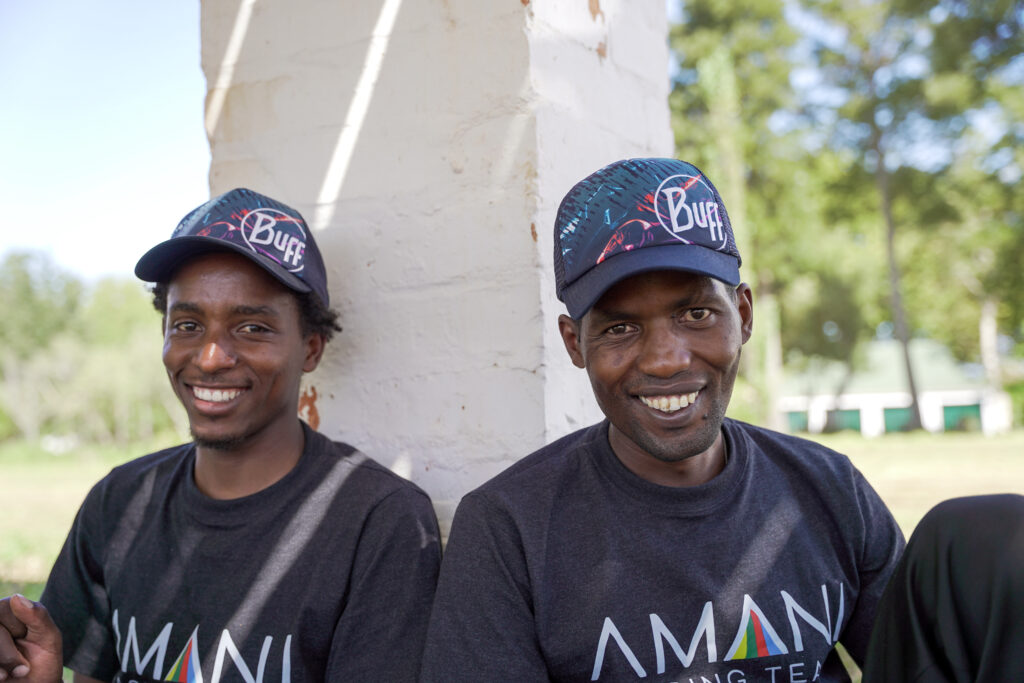
EQUIPMENT
How special having Team AMANI debut the LANDO at the Cape Epic, in addition to Geoffrey Langat racing on the LS at the Race Around Rwanda. Can you share a bit about the rider reactions to their new bikes?
Everybody is very happy with both the LANDO and the LS. It’s just a massive step up. For the first time this year our athletes will be on a level playing field with respect to equipment with the best in the world. This was not the case even last year where our guys were at a distinct disadvantage, so it’s great in the sense that we have less excuses now. It’s not like put up or shut up, because the equipment is there. In general, the riders have just been loving the bikes. It’s really nice to be in this situation now where it’s just our legs versus theirs rather than our equipment being inferior.
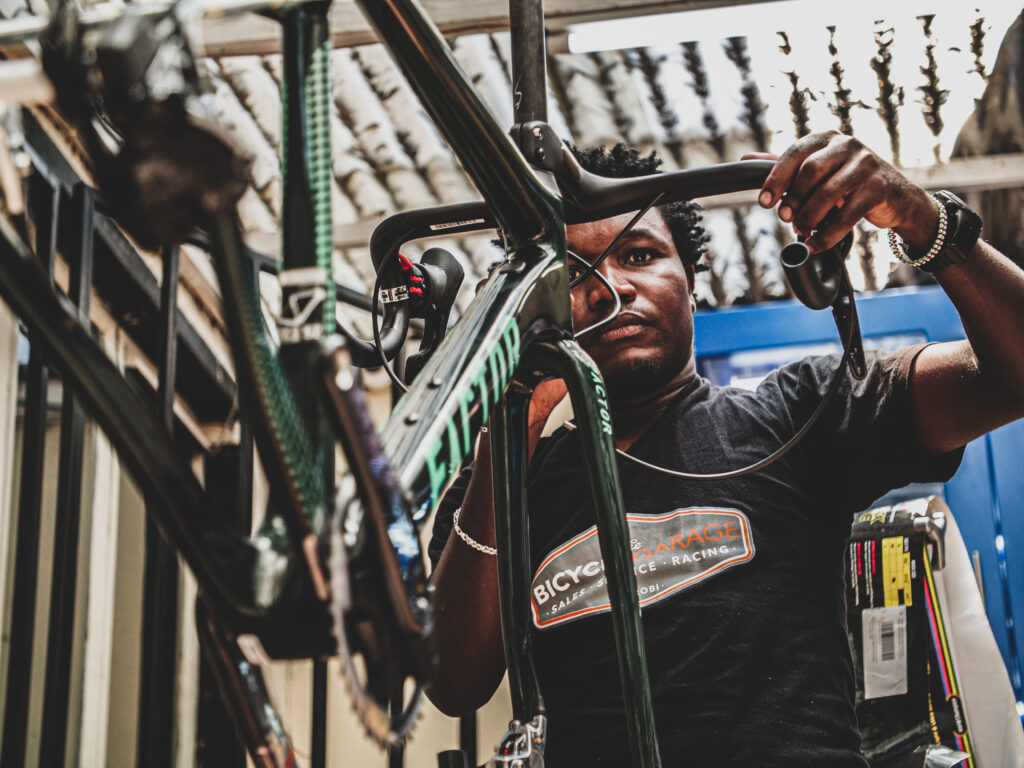
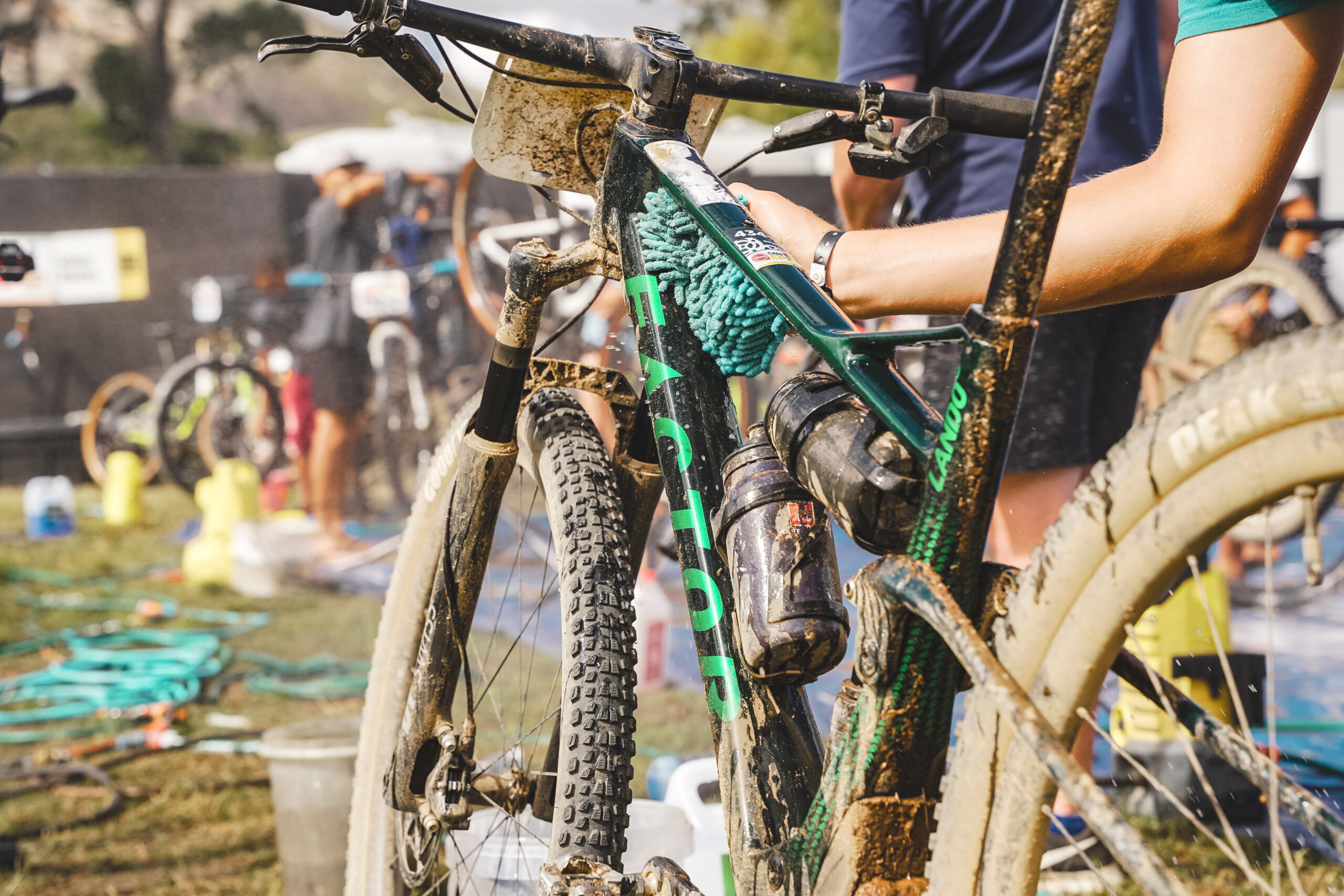
2022 PLANS & AMBITIONS
What events will Team AMANI be targeting this season?
As our team is not American or European, the last big hurdle for us is visas! We now have all of these great partners, the resources we need and races who are opening their arms and inviting us to come and compete. The last thing we now need is to physically get our athletes into the country. So, this is a bit of a stumbling block at the moment with the United States that will hopefully be resolved soon.
We have one race in Hico, Texas – the Gravel Locos on the 14th of May that if all goes to plan our team will be at, but at this stage we have little idea, so we have a second program that will focus on a couple of fine tuning races in Europe before the Migration Gravel Race in Kenya which is a big team goal as it’s our home race. We have a lot of very talented internationals coming this season so this will be a chance for our riders to compete against the best in the world both in Migration and our new event – the Evolution Gravel Race in Tanzania which is even harder and longer, covering 850km and 10,000m over five stages. Both races are back to back, with only five days difference, so a lot of international athletes are coming for both.
As for what’s next, we are going to Girona later this month to target the Traka – we have six athletes going there, three of which will be doing the 361km distance and the other three, the 200km. After that, I’m feeling more confident that whatever the visa situation is, it will be resolved by the second block in the US where we will be targeting SBT GRVL – Steam Boat Gravel Race. It’s a big race in terms of prestige and a lot of our partners will be there. Soon after, there’s gravel worlds and the Vermont Overland. Then at the same time, we’ll start to target some of the UCI gravel events in Europe which will happen almost concurrently from August onwards.
That’s an idea of our plans as we see them, with a couple of mountain bike races also interspersed there, including the Roc d’Azur and maybe Swiss Epic, that we will focus on and plan to get Ken back into winning shape again in MTB! Then of course there’s Geoffrey and a few others following in his footsteps who will be racing quite a unique program targeting high profile ultra-events like the Atlas Mountain Race, Badlands and various other races. Basically, we will be playing to our athletes’ strengths.
As for our women’s team, we are going to see how they go at Migration. That’s what they’re all focussed on because we have the best four or five women in the world coming to compete, so it’s a really unique opportunity for our ladies to see how they go against these athletes. We have three women under 20 who are unbelievably powerful with respect to the numbers that they can put out, but they don’t have the experience just yet. Their LS gravel bikes are due to arrive soon so they can really start getting used to their equipment and begin their preparations, but again, I’m not setting anyone up to fail. I’m not sending our women’s team apart from Nancy to Europe until they get a chance to go up against these top women at Migration and Evolution. If they do well at that level then we will also be sending them all over the place to race.
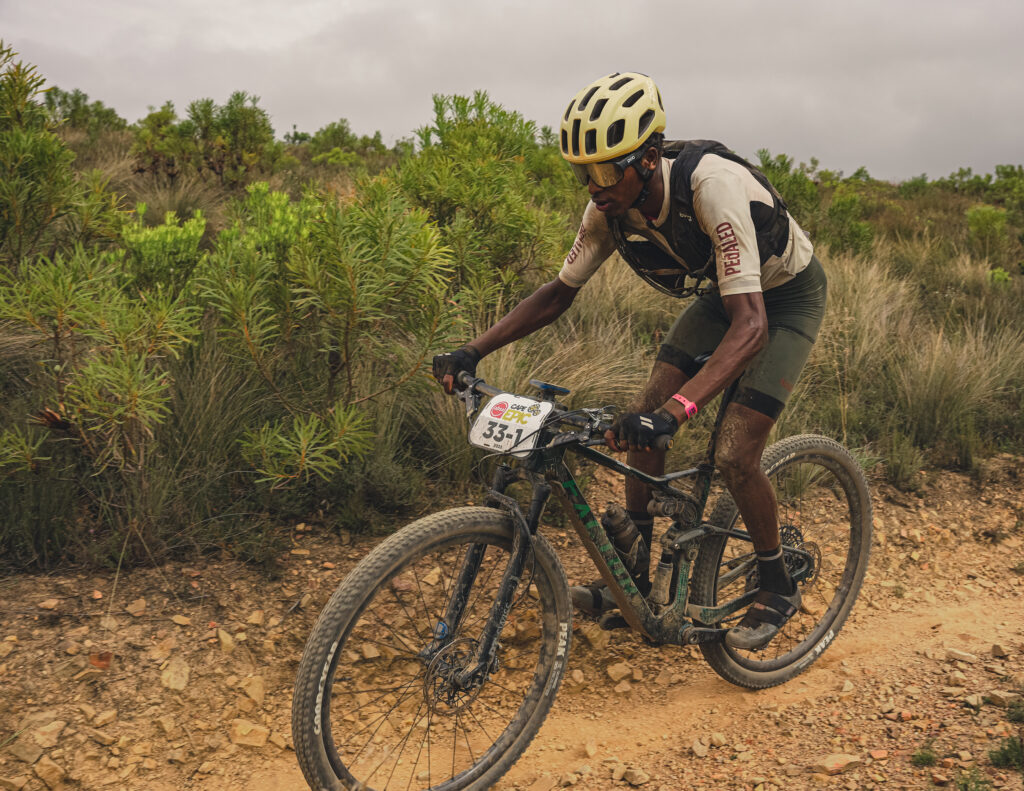
TEAM
Team – Could you share a bit on the team background. How it came about and what inspired you to start it?
To be honest, it’s really hard to say exactly how this team came about. I’m an international criminal lawyer and work at the international criminal board and that’s how I came to know East Africa. I spent 12 years in these countries doing something completely different, mostly focussed on war crimes and crimes against humanity, but in my heart I’m a cyclist and I was always just kind of tuning in to what these guys were doing and following their careers. At the time, I was based in Holland and I thought at some point maybe I could leverage the position of such a cycling powerhouse nation to help these riders with some of the things that they were saying that they needed. So that’s how the whole project started. It was really modest in terms of its ambition, just sort of responding to the needs identified by these individual teams, but then I started to get a little bit of momentum and then we thought, ‘well how about we do this and that’, and then the next thing I know, we have a team and two bike races!
Now our ambitions are let’s just say, ambitious. So, we are trying to put these athletes in positions where they can succeed and try to at the same time get the cycling world and industry to just take a second look at Africa. This is not the Africa of the 80’s. This is not Live Aid Africa anymore. Something has happened in the last 30 – 40 years and people can be forgiven for not knowing, but we are here to tell you that it’s different. It’s not just a place of war, famine and desperation. These are middle income countries with middle classes who are interested in sport and actually turns out can be quite good at it. And so, it’s in everyone’s interest in the cycling industry and even as a cycling fan where the selfish interest comes in, that cycling doesn’t need to be a regional sport anymore. It doesn’t need to be a European based sport, because it runs the risk of growing stale and boring, and cycling should not be boring because it’s a very exciting dynamic – if everyone can play. I think that’s why gravel is so popular in certain respects because it’s not European based. So, people can expand their imaginations beyond Paris Roubaix or the Giro de Lombardia – you can do anything and anywhere. So, we’re kind of trying to cease on that moment – that disruptive moment and try to include new regions into this game.
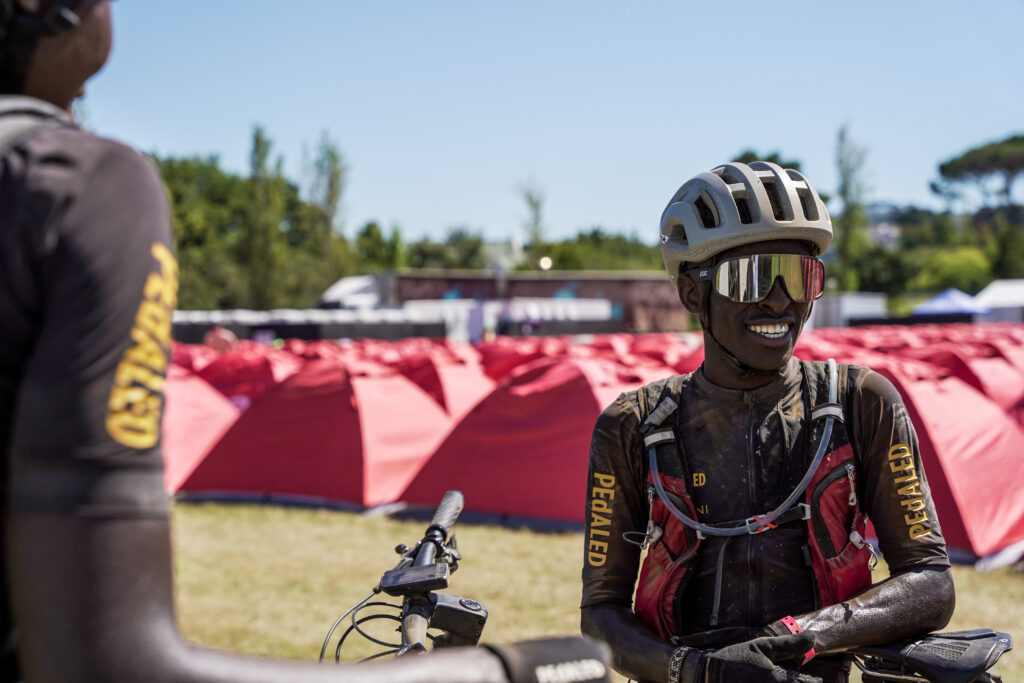
LONG TERM GOALS
What are your longer term goals for the team?
For me, I think we have the suspicion that with just a couple of breakthrough performances, we could light a fire in the countries that we work in. Kenyans, Ugandans, Rwandans – they all love a winner. Anything that brings pride and prestige to them. So, if we can get a couple of our athletes in positions where they can succeed and if everything falls into place and they do, then we will have started the conversation. We would have lit the fire. Created the spark that starts a culture of cycling within these countries. Then what comes of that is anyone’s guess, but it will be progress and there will be more athletes, more young kids saying, ‘ok, I don’t necessarily just need to be a runner if I want to perform in sport – I can also ride bikes’. And then together with our partners – having the material available for those kids who choose that route to actually be able to compete and perform – that’s where we want to be. From a team perspective, we need those results to be that catalyst to motivate these countries and really focus on this for the next generations. Then it will be about committing all of the resources that come from our different partners so that those who do choose to can actually meaningfully do so.
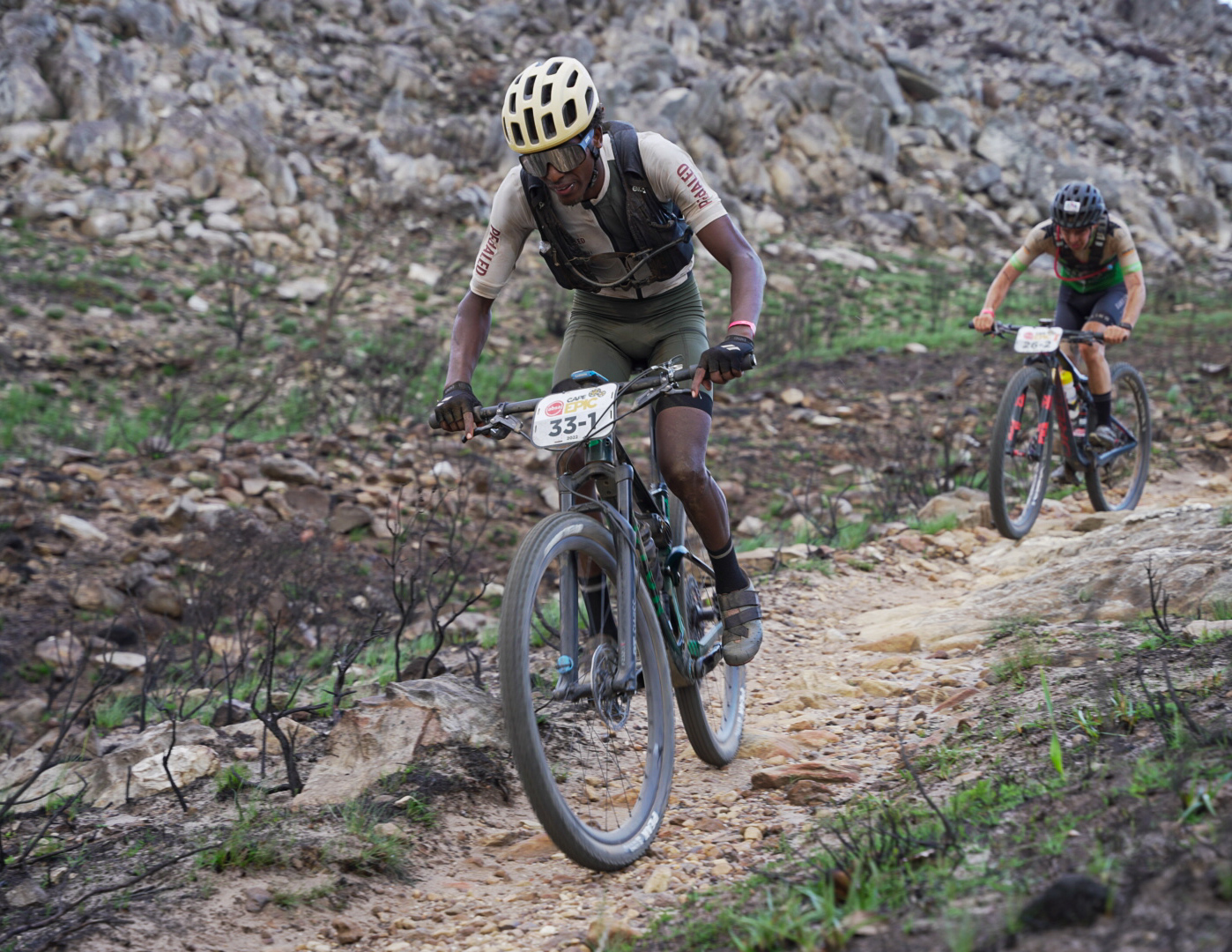
This is just the start of a very bright future for Team AMANI and we are incredibly honoured to be part of their inspiring journey to make movement in the cycling world and for the future of East African cycling. We wish them all the very best as they tackle some of the toughest off-road events on the calendar this season and beyond.
FOLLOW THE TEAM:
SHOW YOUR SUPPORT:
discover the team bikes

© 2025 Factor Bikes. All rights reserved / Privacy Policy |Terms